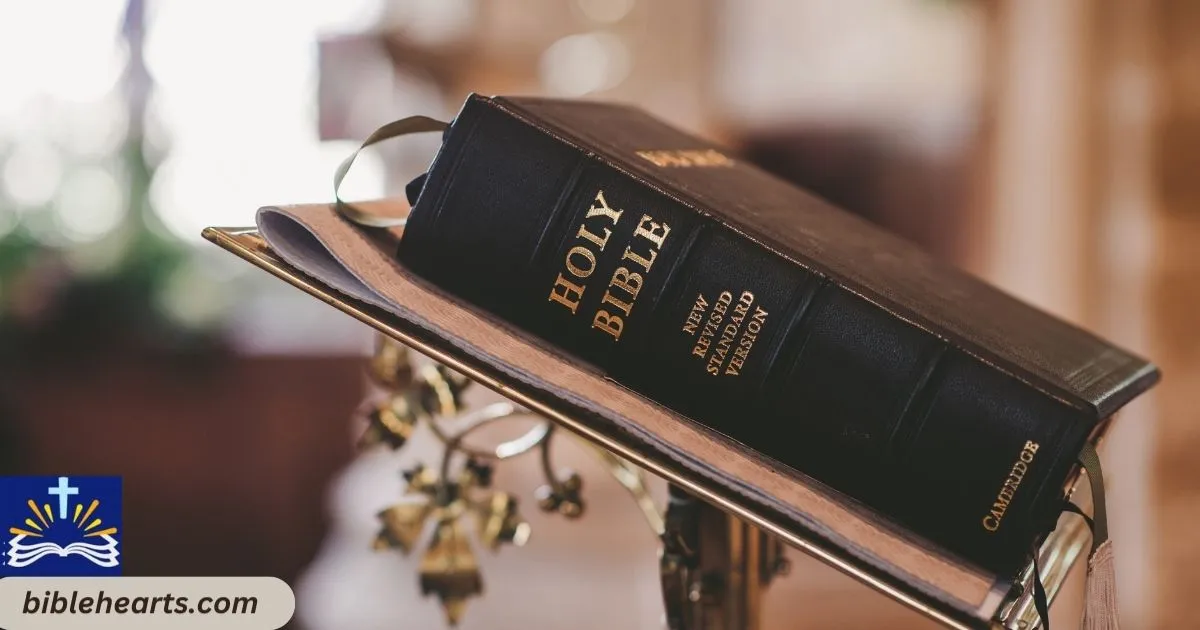Peter’s journey with Jesus reveals deep lessons about faith, forgiveness, and the power of transformation.
Peter, one of the most prominent apostles of Jesus, has an inspiring life story that spans from his initial call to follow Jesus to his role in establishing the early Christian Church. He is often depicted as bold, impulsive, and deeply devoted to Christ, but his journey was also marked by struggle, failure, and redemption. The Bible provides numerous verses that illuminate his path and his faith, showing the transformation of a simple fisherman into a key figure in the history of Christianity.
The life of Peter is one of great significance to believers, as his experiences reflect both the challenges and the rewards of walking in faith. Throughout his journey, Peter’s faith grew stronger, even as he faced trials and doubts. His story not only highlights the grace and forgiveness of Jesus but also serves as a guide for those seeking to live according to God’s will. Understanding Peter’s life and faith can encourage believers to trust in God’s plan for them, even when faced with uncertainty.
In this post, we will delve into the most significant Bible verses about Peter, exploring his call to follow Jesus, his moments of doubt, and his eventual role in the early Church. These verses provide valuable insights into his transformation, and they offer profound lessons about faith, perseverance, and redemption. Let’s break down some of the most notable passages and reflect on what they reveal about Peter’s life and his relationship with God.
Matthew 16:18
“And I tell you that you are Peter, and on this rock I will build my church, and the gates of Hades will not overcome it.”
This verse marks a pivotal moment in Peter’s life. Jesus names Peter the “rock” on which He will build His Church, signifying Peter’s foundational role in the Christian faith. Jesus’ declaration shows that, despite Peter’s imperfections, he was chosen to carry out God’s important mission.
Matthew 14:29
“Come,” he said. Then Peter got down out of the boat, walked on the water and came toward Jesus.”
Peter’s faith is displayed here when he steps out of the boat to walk on water toward Jesus. Though initially successful, Peter’s faith wavers when he notices the storm and begins to sink. This verse reflects the importance of keeping faith and focus on Jesus, even when facing life’s challenges.
Luke 22:61-62
“The Lord turned and looked straight at Peter. Then Peter remembered the word the Lord had spoken to him: ‘Before the rooster crows today, you will disown me three times.’ And he went outside and wept bitterly.”
These verses occur after Peter denies Jesus three times, just as Jesus predicted. The moment of realization is a powerful turning point in Peter’s faith journey, where his sorrow reflects the deep regret and repentance that often follow moments of spiritual failure.
John 21:17
“The third time he said to him, ‘Simon son of John, do you love me?’ Peter was hurt because Jesus asked him the third time, ‘Do you love me?’ He said, ‘Lord, you know all things; you know that I love you.’ Jesus said, ‘Feed my sheep.’”
This moment after Jesus’ resurrection is a powerful one for Peter. Jesus asks Peter three times if he loves Him, echoing Peter’s three denials. Jesus’ question is a call to redemption, forgiveness, and renewed purpose, highlighting the depth of Peter’s commitment and the grace that restores him.
Acts 2:38

“Peter replied, ‘Repent and be baptized, every one of you, in the name of Jesus Christ for the forgiveness of your sins. And you will receive the gift of the Holy Spirit.’”
Peter’s first sermon after Pentecost shows his boldness and newfound strength in the Holy Spirit. He calls for repentance and baptism as a means of receiving forgiveness and the Holy Spirit, establishing one of the key teachings of the early Christian Church.
Acts 4:12
“Salvation is found in no one else, for there is no other name under heaven given to human beings by which we must be saved.”
In this verse, Peter boldly declares that salvation is only possible through Jesus Christ. This proclamation shows his unwavering faith and commitment to the truth of Jesus’ identity as the Savior, despite facing persecution for his beliefs.
Acts 5:29
“Peter and the other apostles replied, ‘We must obey God rather than human beings!’”
When the apostles are commanded not to preach in Jesus’ name, Peter responds boldly. His faith in God takes precedence over human authority, marking a key moment of courage and conviction in the face of opposition.
1 Peter 2:9
“But you are a chosen people, a royal priesthood, a holy nation, God’s special possession, that you may declare the praises of him who called you out of darkness into his wonderful light.”
Peter’s epistle emphasizes the identity of believers in Christ. He reminds Christians that they are a chosen people with a purpose to spread the message of God’s light, a concept central to Peter’s own transformation and calling.
2 Peter 3:9
“The Lord is not slow in keeping his promise, as some understand slowness. Instead he is patient with you, not wanting anyone to perish, but everyone to come to repentance.”
In this verse, Peter reflects on God’s patience and His desire for all to come to repentance. It reminds Christians of God’s long-suffering nature and His deep love for humanity, offering hope and encouragement for those who may still be far from faith.
1 Peter 5:7
“Cast all your anxiety on him because he cares for you.”
Peter offers comforting words to believers who are experiencing anxiety or suffering. This verse encourages trust in God’s care and reminds Christians that they can rely on Him for peace and comfort in difficult times.
Peter’s Call and Early Ministry
Matthew 4:18-19
“As Jesus was walking beside the Sea of Galilee, he saw two brothers, Simon called Peter and his brother Andrew. They were casting a net into the lake, for they were fishermen. ‘Come, follow me,’ Jesus said, ‘and I will send you out to fish for people.’”
Peter’s call to follow Jesus is a significant moment, where Jesus invites him to leave his profession and follow Him. This marks the beginning of Peter’s transformation and the start of his role as a disciple.
Mark 1:16-17
“As Jesus walked beside the Sea of Galilee, he saw Simon and his brother Andrew casting a net into the lake, for they were fishermen. ‘Come, follow me,’ Jesus said, ‘and I will make you fishers of men.’”
This passage highlights Peter’s initial obedience to Jesus’ call. It is a reminder that following Jesus requires leaving behind old ways and embracing a new purpose, one focused on spreading the gospel.
Luke 5:10-11
“Then Jesus said to Simon, ‘Don’t be afraid; from now on you will fish for people.’ So they pulled their boats up on shore, left everything and followed him.”
This passage marks a significant decision for Peter. It shows his willingness to leave everything behind to follow Jesus, displaying the level of commitment and faith that was required to be one of Christ’s closest disciples.
John 1:42
“And he brought him to Jesus. Jesus looked at him and said, ‘You are Simon son of John. You will be called Cephas’ (which, when translated, is Peter).”
In this verse, Peter’s identity is changed by Jesus, marking a turning point in his life. Jesus gives him a new name—Peter (meaning “rock”)—indicating the role Peter would play in the establishment of the Church.
Matthew 10:2
“These are the names of the twelve apostles: first, Simon (who is called Peter).”
This verse shows Peter’s prominent role among Jesus’ disciples. He is the first listed among the twelve apostles, emphasizing his key position in Jesus’ ministry and the early Church.
Bible Verses About Being a Cheerful Giver
Peter’s Faith and Doubts
Matthew 14:30-31
In Matthew 14:30-31, Peter shows both his great faith and his human doubt. When Jesus walked on water to meet the disciples during a storm, Peter stepped out of the boat in faith, asking Jesus to command him to come. However, as Peter began to walk on the water, he noticed the wind and became afraid, causing him to sink. Jesus immediately reached out to save him, saying, “You of little faith, why did you doubt?”
Interpretation: This passage highlights how faith and doubt can coexist. Peter initially had the courage to step out of the boat, but fear crept in as he focused on the storm rather than Jesus. Jesus’ rebuke reminds us to keep our eyes fixed on Him, even in life’s challenges.
John 6:68-69
In John 6:68-69, Peter declares his faith in Jesus, saying, “Lord, to whom shall we go? You have the words of eternal life. We have come to believe and to know that you are the Holy One of God.” This statement comes after many disciples turned away from Jesus, but Peter remained steadfast in his belief.
Interpretation: Despite moments of doubt, Peter ultimately recognizes the truth in Jesus’ teachings and affirms his faith in Him. This passage underscores the importance of choosing to follow Jesus, even when others may leave.
Mark 8:29-30
In Mark 8:29-30, Peter boldly proclaims, “You are the Messiah,” when Jesus asks the disciples, “Who do you say I am?” This is a pivotal moment where Peter recognizes Jesus’ divine identity.
Interpretation: Peter’s declaration shows his deepening understanding of who Jesus is. It’s a turning point in his faith, where he openly acknowledges Jesus’ divine role. This moment serves as a foundation for Peter’s leadership and future teachings.
Matthew 17:4
In Matthew 17:4, during the Transfiguration, Peter suggests building three shelters for Jesus, Moses, and Elijah. While his intention was to honor them, his suggestion revealed his misunderstanding of the moment.
Interpretation: Peter’s impulsiveness reflects his human nature, yet God’s voice corrected him, saying, “This is my Son, whom I love; with him I am well pleased.” Peter’s faith journey involves learning when to listen to God’s voice rather than acting on his own ideas.
Luke 8:45
When Jesus asked, “Who touched me?” in Luke 8:45, Peter responded, “Master, the people are crowding and pressing against you.” This moment comes from a situation where a woman with a bleeding condition touched Jesus’ cloak, believing she would be healed.
Interpretation: Peter’s response illustrates his human perspective, not fully grasping the depth of Jesus’ power. This moment is an example of how Peter often misunderstood situations, yet Jesus patiently taught him.
Peter’s Denial and Restoration
Matthew 26:75
Matthew 26:75 recounts Peter’s denial of Jesus three times before the rooster crowed. Peter, who had previously vowed never to deny Jesus, broke under pressure. Upon hearing the rooster, Peter remembered Jesus’ prediction and wept bitterly.
Interpretation: This moment of failure reveals Peter’s vulnerability. Despite his earlier boldness, fear and pressure led to his denial. However, it also shows the depth of Peter’s remorse, paving the way for his eventual restoration.
Mark 14:72

Mark 14:72 captures the moment of Peter’s denial. After the rooster crowed, Peter remembered Jesus’ words, “Before the rooster crows twice, you will deny me three times.” He broke down and wept.
Interpretation: Peter’s emotional reaction emphasizes the weight of his sin. His sorrow highlights the importance of acknowledging our mistakes and the need for repentance, as well as God’s grace.
John 18:27
John 18:27 is another account of Peter’s denial. After denying Jesus for the third time, Peter heard the rooster crow, and he remembered Jesus’ words.
Interpretation: This passage shows how Peter’s failure was not just a moment of weakness but a profound moment of realizing how far he had fallen. His regret is a vital part of his restoration process.
John 21:15
In John 21:15, after Jesus’ resurrection, He asks Peter three times, “Do you love me?” Peter responds affirmatively each time, and Jesus commands him to feed His sheep, restoring Peter to his role as a leader.
Interpretation: This restoration is a powerful moment of grace. Jesus forgives Peter’s past failures and commissions him to lead others. It shows that no matter how severe our mistakes, God can restore us to a place of purpose.
John 21:19
In John 21:19, Jesus speaks to Peter about the kind of death he would die, a martyrdom for the faith. Jesus’ words confirm Peter’s restored position and the ultimate sacrifice he would make for his faith.
Interpretation: This moment of restoration extends beyond forgiveness; it is a call to Peter to fully embrace the mission God had for him, even if it meant death. It demonstrates the depth of Peter’s renewed faith and commitment.
Peter’s Leadership in the Early Church
Acts 1:15-16
In Acts 1:15-16, Peter addresses the disciples to fill the vacancy left by Judas Iscariot. He quotes scripture and emphasizes the need for a replacement, showing his leadership role in the early church.
Interpretation: Peter’s ability to lead and guide the early church reflects his growth from a follower of Jesus to a leader entrusted with the mission of spreading the Gospel.
Acts 3:6
In Acts 3:6, Peter heals a beggar by saying, “Silver or gold I do not have, but what I do have I give you: In the name of Jesus Christ of Nazareth, walk.”
Interpretation: This healing demonstrates Peter’s faith and reliance on Jesus’ power. It marks a significant moment in his leadership as he performs miracles, just as Jesus had.
Acts 4:8
In Acts 4:8, Peter, filled with the Holy Spirit, boldly speaks to the rulers and elders of Israel, proclaiming that salvation comes only through Jesus Christ.
Interpretation: Peter’s courage in proclaiming the Gospel to powerful authorities exemplifies his transformed faith. His words demonstrate his confidence in the truth of Jesus Christ and his leadership role in the early church.
Acts 9:40
In Acts 9:40, Peter raises a woman named Tabitha from the dead, showing his continuing role in performing miracles and leading the church.
Interpretation: This act reflects Peter’s deepening faith and authority in the early Christian community. It shows his role not just as a teacher but as a leader who demonstrates God’s power.
Acts 10:34-35
In Acts 10:34-35, Peter declares that God does not show favoritism and that all people, regardless of nationality, can receive God’s grace. This moment marks Peter’s pivotal role in opening the Gospel to the Gentiles.
Interpretation: Peter’s realization and proclamation are significant in the church’s mission to reach the world. It represents the shift from a Jewish-centered faith to a global Christian community.
Peter’s Teachings and Letters
1 Peter 1:3
In 1 Peter 1:3, Peter praises God for giving believers new birth into a living hope through the resurrection of Jesus Christ.
Interpretation: This verse emphasizes the hope that Christians have in Christ’s resurrection. Peter encourages believers to focus on the eternal hope, which transcends earthly struggles.
1 Peter 1:13
In 1 Peter 1:13, Peter urges Christians to set their hope fully on the grace to be revealed when Jesus Christ is revealed.
Interpretation: Peter encourages believers to live in anticipation of Christ’s return, focusing on holiness and preparation.
1 Peter 2:5
In 1 Peter 2:5, Peter refers to believers as “living stones” being built into a spiritual house, a holy priesthood.
Interpretation: This passage highlights the collective nature of the church and the responsibility of believers to serve God faithfully.
1 Peter 3:15
In 1 Peter 3:15, Peter encourages believers to always be ready to give an answer to anyone who asks about their hope in Christ.
Interpretation: This verse underscores the importance of defending the faith with gentleness and respect, a core aspect of Peter’s leadership.
2 Peter 1:20-21
In 2 Peter 1:20-21, Peter emphasizes that prophecy in the Scripture did not come from human will but from the Holy Spirit.
Interpretation: This passage speaks to the divine inspiration behind Scripture and encourages believers to trust the authenticity of God’s Word.
Question: How can Peter’s life and faith inspire believers today?
Peter’s life offers powerful lessons in faith, failure, and restoration. His story reminds us that even the strongest believers can struggle, but God’s grace is always available to restore us. Peter’s transformation from a fisherman to a bold apostle shows that God can use anyone, regardless of their past, for His purposes.
Peter’s Confession of Christ
Matthew 16:16
In Matthew 16:16, Peter boldly declares, “You are the Messiah, the Son of the living God.” This moment marks a profound recognition of Jesus’ divine identity. Peter’s confession stands as the foundation of Christian faith: acknowledging Jesus not just as a teacher or prophet, but as the Savior and Son of God.
This confession is significant because it demonstrates Peter’s spiritual insight, guided by the Father. Despite the confusion that surrounded Jesus’ true identity, Peter recognized who Jesus truly was. This moment solidifies the importance of personal faith in recognizing Christ’s divinity and embracing Him as the Savior.
John 6:69
In John 6:69, Peter says, “We have come to believe and to know that you are the Holy One of God.” After many disciples left Jesus following difficult teachings, Peter affirms his faith, stating his unshakable belief in Christ. This verse demonstrates Peter’s unwavering commitment to Jesus, despite the challenges and doubts that arose among others.
Peter’s words reflect a deep conviction and trust in Jesus. It is an example of how, even when others may falter or walk away, true faith endures, leading us to remain with Jesus, our Savior.
Luke 9:20
In Luke 9:20, Jesus asks, “But what about you? Who do you say I am?” Peter responds, “God’s Messiah.” This confession follows Jesus’ question to His disciples about His identity. Peter’s answer here shows his understanding of Jesus’ mission on earth. By acknowledging Jesus as the Messiah, Peter also affirms the fulfillment of God’s promises in the Old Testament.
Peter’s declaration reveals his deep understanding and acceptance of Jesus’ role as the chosen one sent to bring salvation. This is a key moment of spiritual growth and revelation for Peter and the disciples.
Mark 8:29
In Mark 8:29, Jesus asks, “But what about you? Who do you say I am?” Peter replies, “You are the Messiah.” This confession parallels those in other Gospels but adds a layer of personal insight. Peter is the first to explicitly state Jesus’ identity as the Messiah, marking a pivotal moment in their journey of understanding.
Peter’s statement also illustrates the moment when the disciples began to fully grasp the significance of Jesus’ role in the salvation plan.
Matthew 16:17
After Peter’s confession in Matthew 16:16, Jesus responds in Matthew 16:17, saying, “Blessed are you, Simon son of Jonah, for this was not revealed to you by flesh and blood, but by my Father in heaven.” This verse highlights the divine revelation Peter received about Jesus’ identity. It emphasizes that faith in Jesus is not just a product of human reasoning, but a gift from God.
This moment underscores the importance of divine revelation in understanding Christ and His mission. It also highlights the role of the Father in guiding believers to truth.
Peter’s Miracles
Acts 3:7-8
In Acts 3:7-8, Peter performs a miraculous healing of a is physically disabled man. He says, “In the name of Jesus Christ of Nazareth, walk.” The man immediately stands up and walks. This miracle demonstrates the power of the name of Jesus and the authority Peter carried as an apostle.
The miracle serves as a sign of God’s power working through Peter to bring healing and restoration. It also symbolizes the spiritual healing and restoration that come through faith in Jesus Christ.
Acts 5:15-16
In Acts 5:15-16, people bring the sick and demon-possessed to Peter, hoping that his shadow might heal them. This passage shows the growing influence and power of Peter’s ministry, as people believe that even his shadow can bring healing. It reflects how the apostles were empowered by the Holy Spirit to perform miraculous acts that pointed to the truth of Jesus’ resurrection.
Peter’s miracles also exemplify the fulfillment of Jesus’ promise that His followers would do even greater works (John 14:12).
Acts 9:34
In Acts 9:34, Peter heals Aeneas, a man paralyzed for eight years. Peter declares, “Jesus Christ heals you.” This healing serves as a reminder that healing comes through the power of Jesus Christ, and it demonstrates Peter’s role in continuing the work Jesus began.
Acts 9:40-41
In Acts 9:40-41, Peter raises Tabitha (Dorcas) from the dead. This miraculous event is a testament to the power of the Holy Spirit working through Peter. The act of resurrection mirrors the miracles of Jesus and highlights Peter’s role as a leader in the early Church, continuing Jesus’ ministry of healing and restoration.
Acts 8:14-15
In Acts 8:14-15, Peter and John go to Samaria to pray for new believers so they can receive the Holy Spirit. This passage reflects Peter’s role in spreading the gospel and empowering new believers with the Holy Spirit, thus expanding the reach of the early Christian church.
Peter’s Vision and Gentile Inclusion
Acts 10:9-10
In Acts 10:9-10, Peter has a vision of a sheet coming down from heaven filled with unclean animals. God commands him to kill and eat, challenging Peter’s understanding of Jewish dietary laws. This vision prepares Peter for the forthcoming meeting with Cornelius, a Gentile, breaking down the barriers between Jews and Gentiles.
This vision is significant because it marks the beginning of the inclusion of Gentiles in the Christian faith, highlighting that God’s salvation is for all people, not just the Jews.
Acts 10:11-12
In Acts 10:11-12, the vision continues with the sheet containing various animals, both clean and unclean. Peter is puzzled by the vision, unsure of its meaning. However, this vision sets the stage for a profound realization about God’s inclusive love for all people, regardless of their background.
The message here is one of divine revelation: God’s grace extends beyond cultural and religious boundaries.
Acts 10:13-14
In Acts 10:13-14, God commands Peter to kill and eat the unclean animals. Peter responds, “Surely not, Lord! I have never eaten anything impure or unclean.” This exchange illustrates Peter’s struggle to understand the breaking down of the traditional barriers between Jews and Gentiles. The message is that God’s love is not confined by human traditions or laws.
Acts 10:15-16
In Acts 10:15-16, God repeats the command, saying, “Do not call anything impure that God has made clean.” This clarifies that Peter’s understanding of purity and cleanliness is being challenged. The vision symbolizes God’s broader plan of salvation for all nations, not just Israel.
Acts 10:34-35
In Acts 10:34-35, Peter realizes the meaning of the vision and declares, “I now realize how true it is that God does not show favoritism but accepts from every nation the one who fears him and does what is right.” This statement affirms that the gospel is for everyone, regardless of nationality, race, or background.
Peter’s Imprisonment and Deliverance
Acts 12:3-4
In Acts 12:3-4, Peter is arrested by King Herod and placed in prison. This event reflects the growing persecution faced by the early Church. Herod’s intention is to publicly execute Peter, following the execution of James, the brother of John.
This passage underscores the danger early Christians faced in proclaiming the gospel. Yet, it also sets the stage for God’s miraculous intervention.
Acts 12:5
In Acts 12:5, the Church earnestly prays for Peter’s release. This verse highlights the power of prayer in times of persecution and danger. It serves as a reminder of the importance of the faith community coming together to seek God’s intervention.
Acts 12:6-7
In Acts 12:6-7, an angel of the Lord appears to Peter in prison, waking him and guiding him out of his chains. This miraculous deliverance shows that God is always present, even in the most difficult circumstances, and that His power is greater than any earthly authority.
Acts 12:8
In Acts 12:8, the angel tells Peter to dress and follow him. The ease with which Peter follows the angel’s commands illustrates his faith and obedience, even in the face of seemingly impossible circumstances.
Acts 12:9-10
In Acts 12:9-10, Peter follows the angel out of the prison and into the city. The doors open by themselves, symbolizing divine intervention. Peter’s deliverance emphasizes that God’s plans cannot be thwarted, and He will deliver His followers in His perfect timing.
Bible Verses About Peter’s Life and Faith”
| Biblical Principle | Application | Scripture Reference |
| Faith and Boldness | Peter’s boldness in proclaiming Christ despite opposition | Acts 2:14-36 |
| Walking by Faith | Trusting Jesus even in uncertain circumstances | Matthew 14:28-31 |
| Repentance and Restoration | Peter’s denial of Jesus and his restoration through repentance | Luke 22:61-62; John 21:15-17 |
| Spiritual Growth and Leadership | Peter’s growth as a leader in the early church | Matthew 16:18; Acts 2:41 |
| Endurance Through Suffering | Peter encourages believers to endure trials and suffering | 1 Peter 4:12-13 |
Key Insight
Why did Peter deny Jesus?
Peter denied Jesus out of fear, as he was confronted by others who recognized him as a follower of Jesus. It was a moment of weakness, but it also revealed his humanity.
What was Peter’s role in the early church?
Peter played a significant leadership role, guiding the early Christians and spreading the Gospel, even performing miracles in Jesus’ name.
How did Peter demonstrate faith?
Peter demonstrated faith through his bold actions, such as walking on water toward Jesus and declaring Him as the Messiah. Despite moments of doubt, he continually relied on Jesus.
What is the significance of Peter’s restoration?
Peter’s restoration after his denial shows the grace of God. Jesus forgave Peter and reaffirmed his leadership, highlighting the importance of repentance and renewal.
What can we learn from Peter’s letters?
Peter’s letters encourage believers to remain steadfast in faith, hope in Christ’s return, and live holy lives. His writings emphasize the importance of trusting God’s promises.
Conclusion:
Peter’s life, filled with faith, doubts, denial, and ultimate restoration, serves as a powerful reminder of God’s grace. His journey encourages us to trust in God’s ability to transform our failures into opportunities for growth and leadership. Through Peter’s example and teachings, we learn the importance of steadfast faith, repentance, and the power of grace to restore us no matter where we fall.

Hi! I’m Ethan Matthews, a tech enthusiast and avid traveler, sharing insights and adventures from my journeys around the globe.










